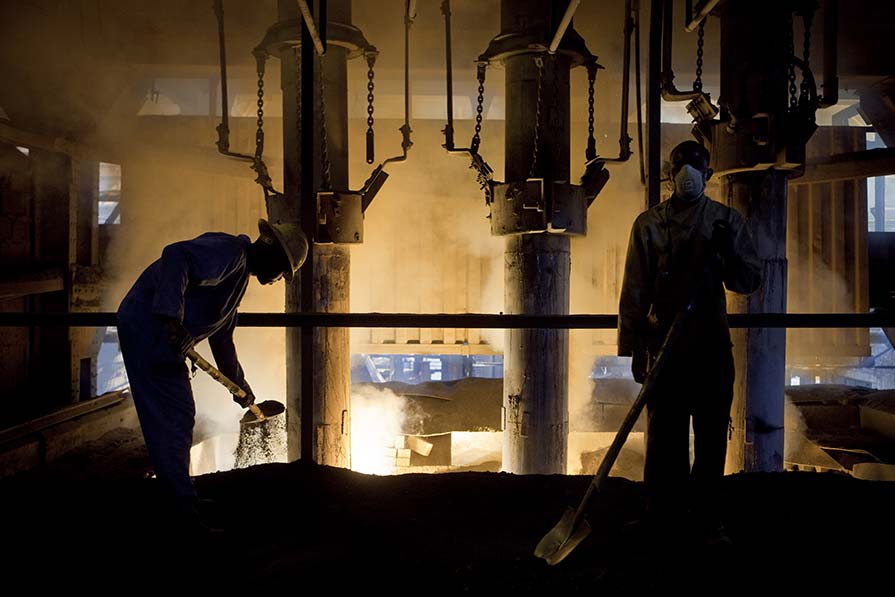
Congolese men work in a Lubumbashi mine. (Photo: The Carter Center/ G. Dubourthoumieu)
Background
The Democratic Republic of the Congo is one of the richest nations on Earth in terms of natural resources. Still, most Congolese people haven't enjoyed the benefits from the billions of dollars invested in the DRC's extractive sector over recent decades.
Corruption, mismanagement, and insufficient institutional capacity have allowed revenues to be channeled away from investment in the country's sustainable development, leaving local communities to suffer the negative environmental, health, and human rights impacts of the oil, gas, and minerals industries, often with no effective means of recourse.
Overview
The Carter Center has been a leading advocate in this context since 2009. We work to strengthen civil society organizations specializing in natural resources and offer them opportunities to cultivate skills to engage and influence decision-makers and protect communities. These efforts include women-led groups seeking to engage in a traditionally male-dominated sector.
Our Goals
The Extractive Industries Governance Project's overarching goal is to achieve climate and environmental justice for Congolese people. We aim to advance transparency and accountability in the extractive sector. The project seeks to strengthen national civil society organizations' capacity to monitor, analyze, and report on specific mining projects and sector-wide governance issues.
Strategy
The Carter Center trains and supports local partners and communities to:
- Track resource and revenue flows.
- Conduct human rights impact assessments to determine how specific major industrial mining projects or hydrocarbon operations negatively impact communities. This information is published on the Center's CongoMines website.
- Understand the impacts of extractive operations on their lives.
- Engage companies and the government to address their concerns.
- Participate in constructive dialogue with government and company representatives on specific concerns and recommendations.
- Raise awareness of key concepts, such as human rights and corporate social responsibility.
Accomplishments
- The Center received the International Association for Impact Assessment's Institutional Award.
- We developed a 2017 investigation and report that helped reveal over three-quarters of a billion dollars in unaccounted revenue at Gécamines, the DRC's largest state-owned mining company.
- The DRC enacted a new mining code that incorporated key recommendations from the Center and its partners.
- The Extractive Industries Transparency Initiative recognized our CongoMines website as an essential online tool to catalyze investigations into the management of extractive sector revenues.
- We identified millions in lost revenue for the DRC treasury and uncovered questionable accounting practices, undisclosed tax carve-outs, and revenue diversion in the first investigation of extractive operations.
- We conducted nine human rights impact assessments that helped uncover environmental problems with partners, such as air, water, and soil pollution; health problems such as chemical burns and breathing conditions; and social and economic problems such as land seizures and the loss of livelihoods.
- We developed advocacy campaigns that have resulted in legal reforms, as well as changes in specific practices.
- We helped secure over $210 million in community investments through negotiation, implementation, and oversight of 51 local development agreements between mining companies and communities.